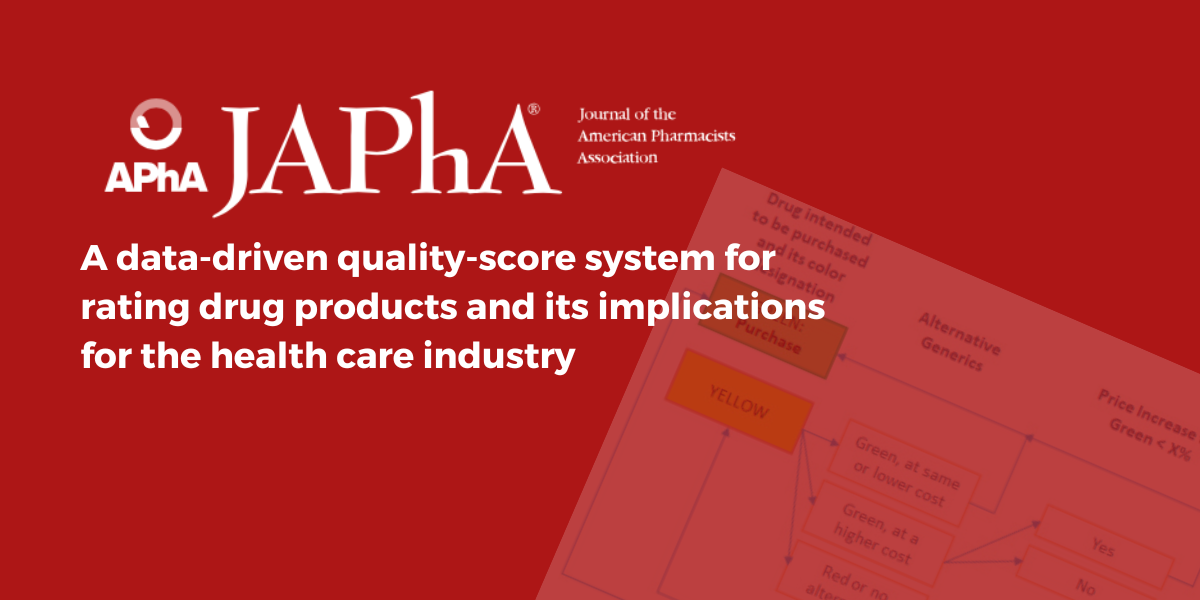medRxiv: Evidence-Based Quality Scores for Rating Drug Products and Their Utility in Health Systems
A study published in medRxiv titled Evidence-Based Quality Scores for Rating Drug Products and Their Utility in Health Systems covers the quality of drug products in the United States, largely produced overseas.
Buyers and payers of pharmaceuticals, whether they are health-systems, insurers, PBMs, pharmacies, physicians, or patients, have little to no visibility into any quality metrics for the manufacturers of drug products or the products themselves. A system of “quality scores” is proposed to enable health systems and other purchasers and payers of medication to differentiate among drug products according to evidence-based metrics. Metrics influencing the quality scores described herein include both broadly applicable regulatory information and more drug-specific, third-party chemical analysis information. The aggregation of these metrics through a proposed set of rules results in numerical values on a 0-100 scale that may be further simplified into a red/yellow/green designation. The simplicity of such scores enables seamless integration into existing healthcare systems and an integration scheme is proposed. Using real-world data from currently on-market valsartan drug products, this proposed system generated a variety of quality scores for six major manufacturers. According to their current market price, these scores were further evaluated, showing no significant correlation between quality score and price. The implementation of drug quality scores at healthcare institutions in the United States and their potential utilization by regulators, could create a much-needed, market-driven incentive for pharmaceutical manufacturers to produce quality medications that would reduce drug shortages and improve public health.
Read the full study here.




